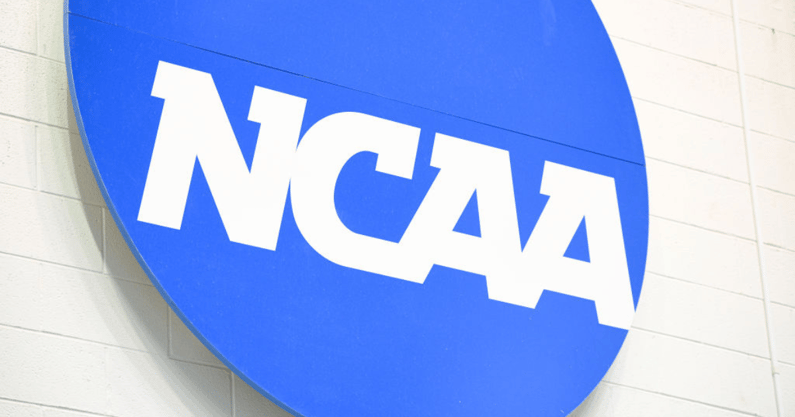Maryland baseball player Trey Ciulla-Hall denied additional eligibility after NCAA lawsuit

Another key NCAA eligibility decision came down Friday. A judge denied Maryland baseball player Trey Ciulla-Hall’s claim arguing for another year.
The lawsuit was filed earlier this week in the U.S. District Court of Massachusetts by Ciulla-Hall. He argued his 2020-21 season at Division II Stonehill College shouldn’t count against his eligibility due to both recent precedent and COVID-19 circumstances. It is similar to a suit filed by Wisconsin defensive back Nyzier Fourqurean.
Judge Denise J. Casper denied Ciulla-Hall’s claim in a filing Friday. She cited an “undeveloped record” in her decision.
“The court is not unsympathetic to Ciulla Hall’s situation, and notes that the denial of injunctive relief does not reflect any assessment of the plausibility of his claims,” the filling states. “Nevertheless, on an undeveloped record, and under emergency circumstances that are not of the NCAA’s making, and in fact, appear at least in part attributable to Ciulla-Hall’s delay in seeking injunctive relief, Ciulla-Hall has not met the burden for injunctive relief.”
Ciulla-Hall played at Stonehill for the last four seasons, largely at first base and third base. He had a career .306 batting average with the Skyhawks while launching 28 home runs and totaling 131 career RBI. He announced his commitment to Maryland in July 2024.
The NCAA later released a statement on the decision in Trey Ciulla-Hall’s lawsuit. It cited the need to create “safe and fair” competition with the current eligibility rules.
“The NCAA and its member schools strive to provide world-class athletics and academic experiences for student-athletes that foster lifelong well-being,” the statement read. “The member-approved rules, including years of eligibility, are designed to help ensure competition is safe and fair – aligning collegiate academic and athletic careers to provide high-level opportunities and benefits to hundreds of thousands of student-athletes.
Top 10
- 1Hot
John Calipari
Shreds conference tournaments
- 2New
Livvy Dunne injury
LSU coach updates status
- 3
Paul Finebaum
SEC prefers UNC, UVA for expansion?
- 4Trending
AP Poll Top 25
Top 3 shakeup
- 5
New No. 1
Coaches Poll Top 25
Get the On3 Top 10 to your inbox every morning
By clicking "Subscribe to Newsletter", I agree to On3's Privacy Notice, Terms, and use of my personal information described therein.
“The Court’s ruling today is a reflection of our longstanding commitments to these ideals. Just as the NCAA and its member schools have always done, we will continue to work together to provide unparalleled opportunities for student-athletes.”
Ciulla-Hall’s suit came after Fourqurean argued his season at D-II Grand Valley State shouldn’t count against his eligibility. Judge William M. Conley granted the preliminary injunction in an unprecedented legal win Thursday night.
There’s a difference in Fourqurean’s case, though. Conley’s argument centered around the NCAA’s waiver process instead of the five-year rule.
“The waiver process itself appears problematic given plaintiff’s counsel’s representation that only the UW, and not plaintiff himself, could apply for a waiver, functionally requiring an NCAA-member institution to sponsor a student-athlete before he can apply for a waiver, further restricting his ability to market his services,” the judge wrote.